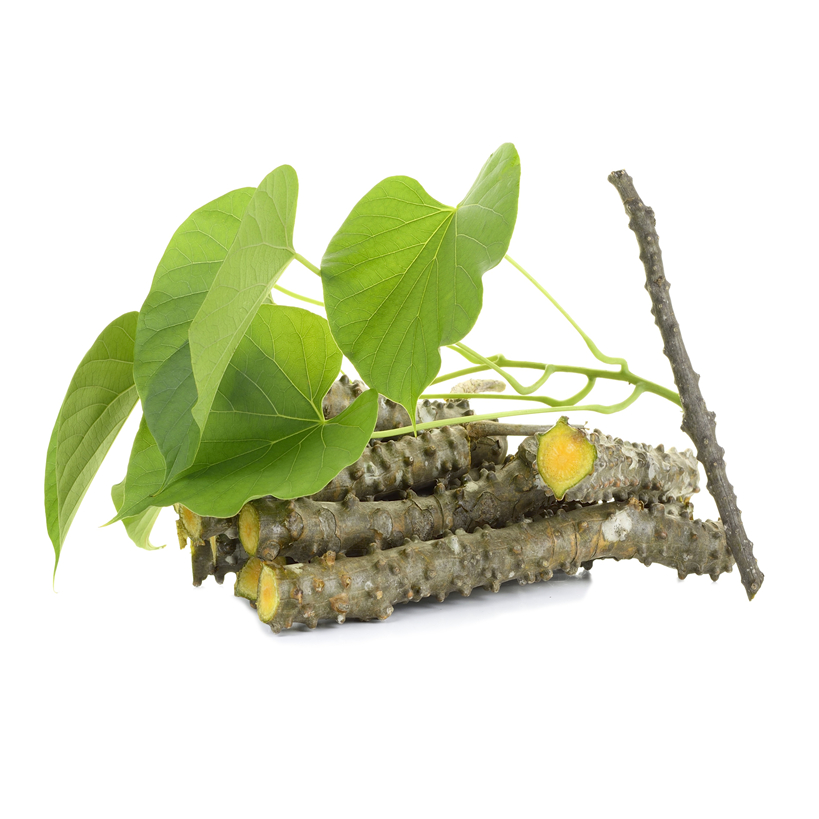
Background
Tinospora cordifolia contains many different chemicals that might affect the body. Some of these chemicals might have antioxidant and anti-inflammatory effects. Others might affect the immune system.
People use Tinospora cordifolia for hay fever, athletic performance, diabetes, high cholesterol, upset stomach, and many other conditions, but there is no good scientific evidence to support these uses.
Don't confuse Tinospora cordifolia with Andrachne, Arnica, Cha de Bugre, Cordyceps, Sida cordifolia, or Spearmint. These are not the same.
Safety Safety definitions
When applied to the skin: There isn't enough reliable information to know if Tinospora cordifolia is safe. It might cause burning, itching, and redness when applied to the skin.
Special Precautions & Warnings:
Pregnancy and breast-feeding: There isn't enough reliable information to know if Tinospora cordifolia is safe to use when pregnant or breast-feeding. Stay on the safe side and avoid use."Autoimmune diseases" such as multiple sclerosis (MS), lupus (systemic lupus erythematosus, SLE), rheumatoid arthritis (RA), or other conditions: Tinospora cordifolia might cause the immune system to become more active. This could increase the symptoms of autoimmune diseases. If you have one of these conditions, avoid using Tinospora cordifolia.
Surgery: Tinospora cordifolia might affect blood sugar levels. This might interfere with blood sugar control during and after surgery. Stop taking Tinospora cordifolia at least 2 weeks before a scheduled surgery.
Effectiveness
- Diabetes. Taking Tinospora cordifolia by mouth seems to improve blood sugar in adults with type 2 diabetes.
Dosing & administration
Interactions with pharmaceuticals
Medications changed by the liver (Cytochrome P450 1A2 (CYP1A2) substrates)
Interaction Rating=Moderate Be cautious with this combination.
Some medications are changed and broken down by the liver. Tinospora cordifolia might change how quickly the liver breaks down these medications. This could change the effects and side effects of these medications.
Medications changed by the liver (Cytochrome P450 2C19 (CYP2C19) substrates)
Interaction Rating=Moderate Be cautious with this combination.
Some medications are changed and broken down by the liver. Tinospora cordifolia might change how quickly the liver breaks down these medications. This could change the effects and side effects of these medications.
Medications changed by the liver (Cytochrome P450 2C9 (CYP2C9) substrates)
Interaction Rating=Moderate Be cautious with this combination.
Some medications are changed and broken down by the liver. Tinospora cordifolia might change how quickly the liver breaks down these medications. This could change the effects and side effects of these medications.
Medications changed by the liver (Cytochrome P450 2D6 (CYP2D6) substrates)
Interaction Rating=Moderate Be cautious with this combination.
Some medications are changed and broken down by the liver. Tinospora cordifolia might change how quickly the liver breaks down these medications. This could change the effects and side effects of these medications.
Medications for diabetes (Antidiabetes drugs)
Interaction Rating=Moderate Be cautious with this combination.
Tinospora cordifolia might lower blood sugar levels. Taking Tinospora cordifolia along with diabetes medications might cause blood sugar to drop too low. Monitor your blood sugar closely.
Medications that decrease the immune system (Immunosuppressants)
Interaction Rating=Moderate Be cautious with this combination.
Tinospora cordifolia can increase the activity of the immune system. Some medications, such as those used after a transplant, decrease the activity of the immune system. Taking Tinospora cordifolia along with these medications might decrease the effects of these medications.


